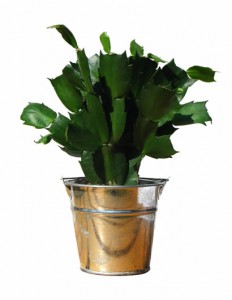Most owners are fully aware of the dangers presented by toxic chemicals like bleach, anti-freeze, medicine and cleaning agents. However, a lesser-known threat comes from common houseplants that are toxic when ingested by a small Chihuahua. These plants may look nice and decorative when used in your home, but they could pose a serious risk for your Chihuahua. Depending on the specific plant, it may causes symptoms ranging from nausea and lethargy to anemia and even stroke in severe cases.

If you have or are thinking about getting plants for your home or garden, you should first check to see whether or not they are toxic. Here we’ll be going over some of the most common toxic plants for our owners to refer back to. While we’ll try to cover as many as we can, there are probably others that we haven’t listed, so don’t assume a plant is non-toxic just because it’s not listed below. You can check with a professional veterinarian to determine if any plant not mentioned here is toxic or not.
List of Plants That are Toxic To Chihuahuas:
- Aloe
- Azaleas
- Bean Plants
- Buckeye
- Cactus
- Corn Plant
- Crocus
- Daffodil
- Dieffenbachia
- Emerald Fern
- Foxglove
- Hemlock
- Hydrangea
- Ivy
- Lace Fern
- Lily
- Mistletoe
- Narcissus
- Nightshade
- Oleander
- Philodendron
- Poinsettia
- Potato Leaves
- Rhododendron
- Tomato Plant
Note: If you know of a specific plant that’s toxic to Chihuahuas not mentioned here, please contact us with any references you have regarding its toxicity. Even if it’s just a personal experience regarding your Chihuahua and a houseplant, let us know. We’ll do our best to go over your email in a timely manner and update the list here with any new plants.
Treating Toxic Plant Consumption
If you believe your Chihuahua has consumed a potentially toxic plant listed here, you’ll want to immediately call the ASPCA poison control hotline at 1-888-426-4435. They are available 24 hours a day, 365 days a week for pet owners to call. Once you’re able to get someone on the phone, let them know the size of your Chihuahua, what type of plant they consumed, how much they consumed, when the incident happened and any other information they ask for. All of these factors will go into determining the proper treatment for your Chihuahua’s condition.
In some cases, a veterinarian may recommend that you try to induce vomiting in your Chihuahua by giving them a cap of hydrogen peroxide. For this reason, it’s recommended that you keep a bottle in your medicine cabinet just in case. More severe cases may require your Chihuahua be rushed to the emergency veterinarian for professional treatment. Either way, you need to act fast to determine what the best course of treatment is.
References: